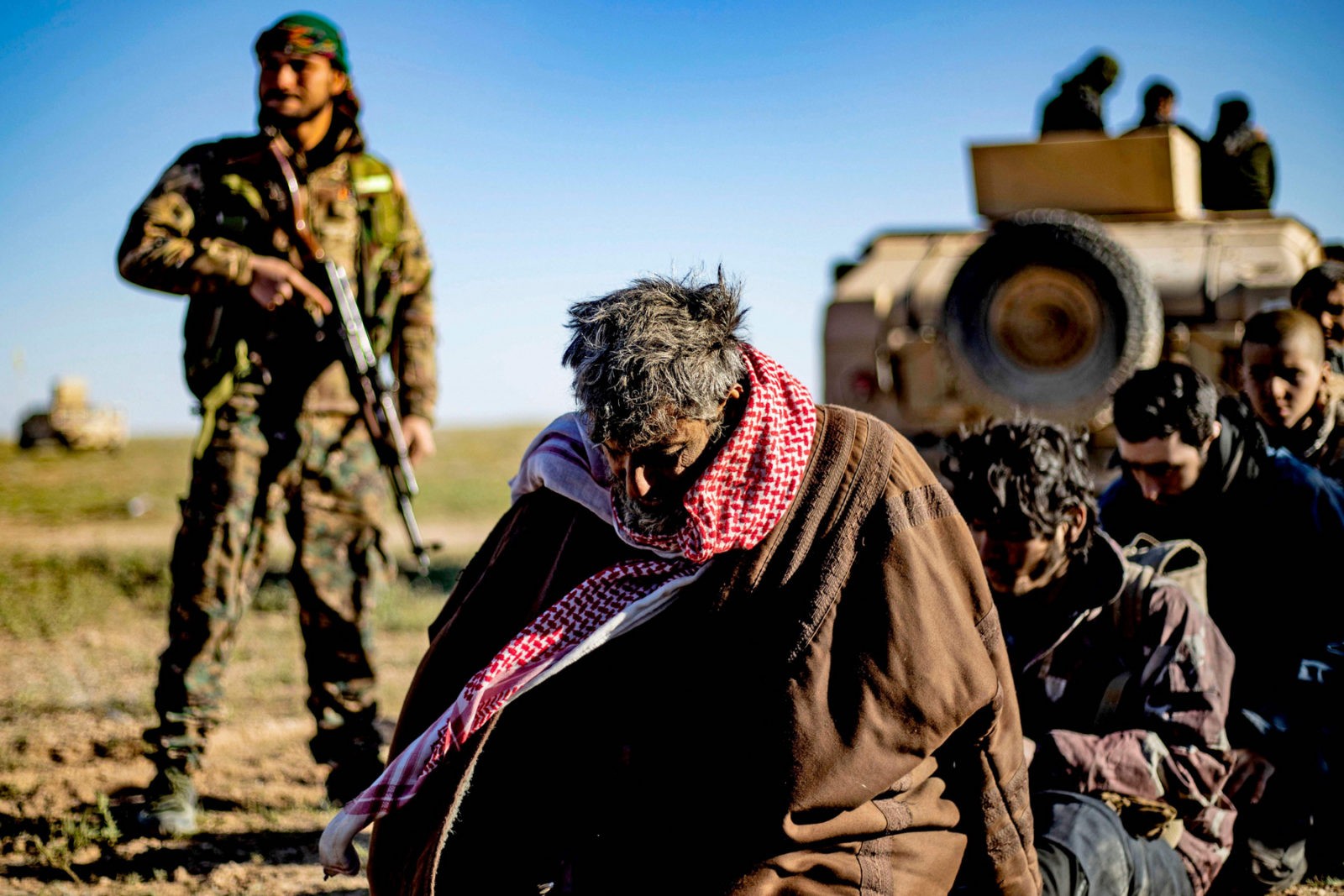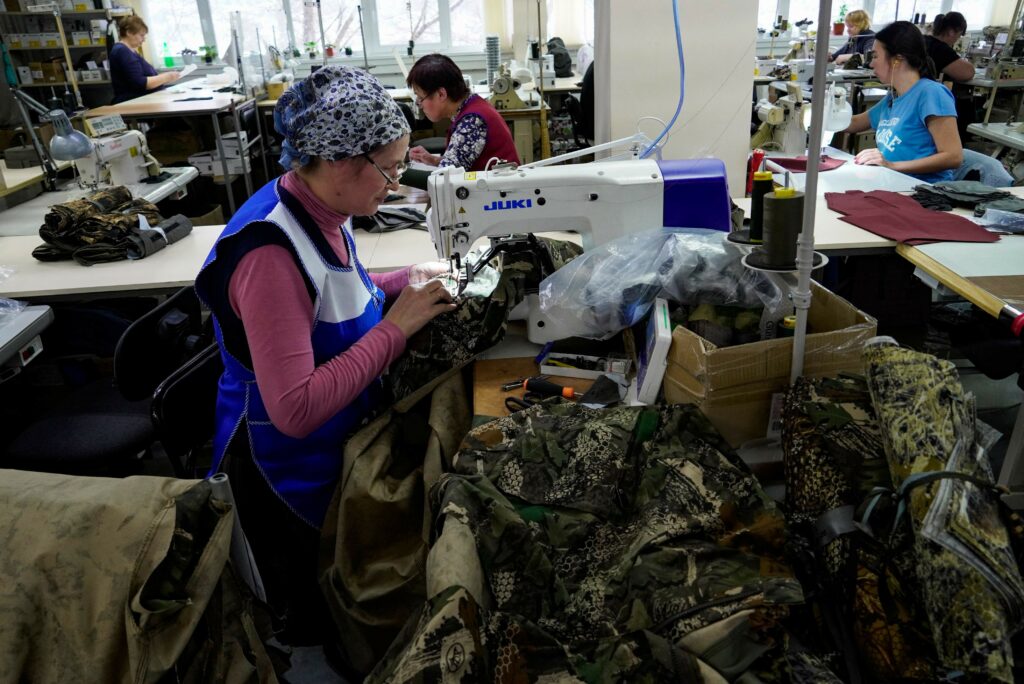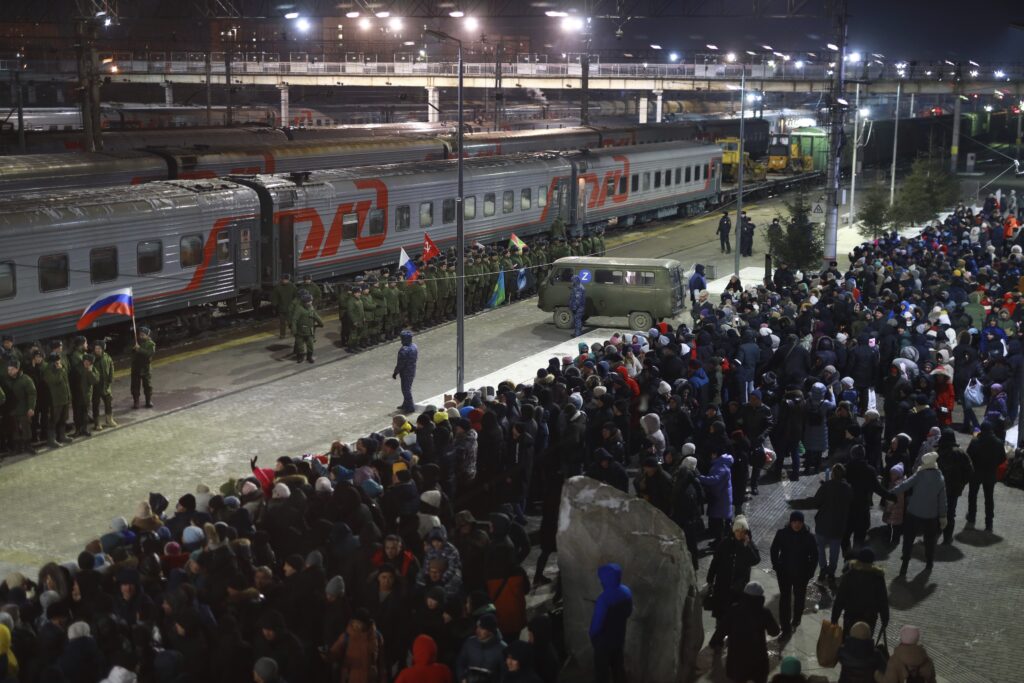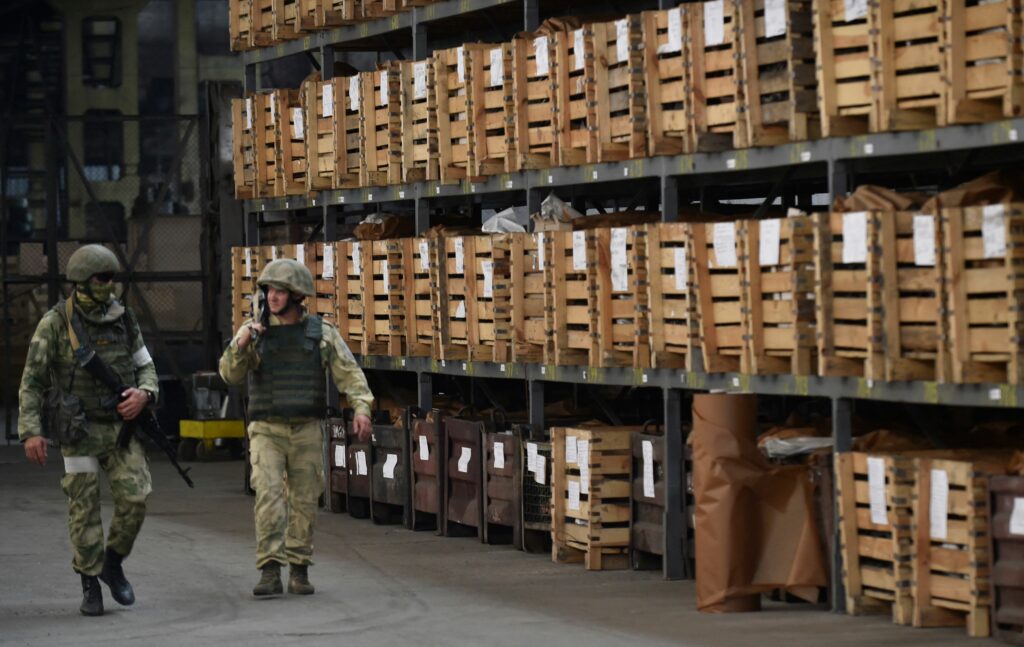Several thousand Russians have asked Moscow to help them return home after the defeat of the so called “caliphate” in Syria and Iraq. Yet, only a few women and children were evacuated from the conflict zone in the recent months. Returning IS fighters and families remain an urgent issue — especially after Turkey’s military operation in Syria that forced Kurdish forces to free captured jihadists. While European countries are looking for a proper policy response, Russia and other ex-Soviet Republics are also expected to have a security reaction. After all, they have a significant share of foreign fighters in Syria.
About 11 000 jihadi fighters are still detained and guarded by the Syrian Democratic Forces. Among them are 2000 foreign nationals. The number is even higher if we count IS families who live in the al-Hol refugee camp in northeastern Syria. Here, the Islamic State keeps up its recruitment efforts. After the Turkish military operation in Syria, women from the Northern Caucasus with children who have been in a camp asked Russia to evacuate them. Yet over the last few days, they have stopped being in touch with their relatives, according to reports. Currently, relatives are seeking at least 700 women and 1000 children from countries such as Russia, Kazakhstan, Uzbekistan.
Clashes between Turkey and the Kurds in northeast Syria and the increasing role of Russia come with some urgent questions. Not least: what will be the fate of IS fighters and their families? The risk of IS members escaping prisons and camps in Syria is high. The Kurds are unable to keep guarding them. Estimates show about seven thousand Russian citizens, predominately from Chechnya and Dagestan, have joined IS. Compared to Russia, about 6000 individuals from France, Germany, The UK, and Belgium have contributed to the ranks of IS. Another 1000 Western Balkan fighters also reached the battlefield at the height of the Syrian war. The data on Western Europe points to more than 1000 women and more than 1500 minors are part of the total. About 1/3 of all those who travelled to the battlefield have returned. Many went back in the first months of the “caliphate”: disillusioned with their experience under IS rule.
Does Russia, among others, have a plan? A 2018 report by the International Centre for the Study of Radicalization (ICSR) show a lack of accurate estimates for how many remain. The ICSR claims up to 1000 women and 1000 minors are Russian citizens and remain the conflict areas. At a meeting between leaders of ex-Soviet states in Ashgabat, the capital of Turkmenistan, Putin called the possibility of thousands of IS fighters escaping Kurdish prisons “a real threat for all of us” . Yet, before its intervention in Syria in 2015, Moscow reportedly allowed Russian citizens to leave the country to join IS. According to journalistic investigations, Russian state officials let radicalized individuals travel to the battlefield in Syria before the Sochi 2014 Winter Olympics.
Like countries in the West, Russia needs to decide what to do with IS wives and children. So far, there is no articulated policy that would address the issue in the long term. Russia is among those who have taken children of suspected jihadists back home. According to data from 2018, documents are already being prepared for the return of 155 children from 16 Russian regions to Russia. Yet, under the camouflage of humanitarian actions, the political opportunity for image-making is also in place. In 2017 Chechen leader Ramzan Kadyrov stated that he wants to rescue IS orphans. Back then Russia television showed the Kremlin-backed president of Chechnya welcoming back to Grozny a 4-year-old boy who had been brought by his father to join IS. This type of humanitarian campaign has allowed the Chechen president to benefit form the image of forgiving enemies. Yet his regime has long been accused of reprisals against Islamist fighters and their families.
The question of repatriation is not an easy one, especially with the lack of rehabilitation programs. IS women may represent a security concern; yet they also have the responsibility for taking care of their children and may need psychological and community support once they are back.
Another issue: the trajectories of IS male fighters after the caliphate and the death of Abu Bakr al-Baghdadi. As their return is not that “desirable”, repatriation and prosecution may take longer, if it happens at all. Those who feel regretful and disillusioned may still hope for repatriation. They might assent to the idea of going to jail in their countries of origin. The rest still committed to the cause of jihad have several paths ahead, depending on strategies and reorganization of the group. First, IS fighters are likely to work for rank consolidation, revival and re-establishment of their structures across the Middle East. As in prior insurgencies, in which jihadists took part, some may migrate to other conflicts like Afghanistan, Yemen, or Eastern Ukraine. Finally, seeking revenge and targeting their home countries or the West for the failure of the “caliphate” is not excluded. Among others, Russian IS fighters will choose some these options. The lack of security responses to any of the jihadists’ trajectories is to be a concern for Russia and former Soviet Republics. It will also be worrying for countries with extended Chechen diaspora communities linked to IS fighters.
Five years after the so-called “caliphate” was established, returning IS fighters are among the urgent security issues also for Western European countries. Decision-making in “old Europe” on such a sensitive security issue seems to be reactive. When there is a sense of emergency, big EU states show a reaction. Belgium is preparing to evacuate their IS suspects from Syrian detention camps, followed by the other most affected countries in Europe, The UK, Germany and France who may also take actions to repatriate women and children.
One irony: countries in Europe with little capacity to address the issue of returning IS fighters, such as tiny Kosovo, have gotten their citizens back. Those with years of counter-terrorism experience, money, and well-functioning security institutions are reluctant. The best example is the UK. The country is reconsidering its approach of ignoring the problem and bringing IS children home. The British government has now repeatedly tried to address the matter by stripping people of British citizenship where possible. Most prominent was the case of Shamima Begum, a London schoolgirl who travelled to Syria and married a Dutch member of IS.
So far, nobody has a plan what should be done with IS returnees. Although the recruitment of jihadists has been labeled a global issue, countries deal with the problem individually. They take decisions that fit their national security priorities only. Yet, while dealing with the security concern not to spread the cause of IS, national governments are already failing to separate it from humanitarian responsibilities.










